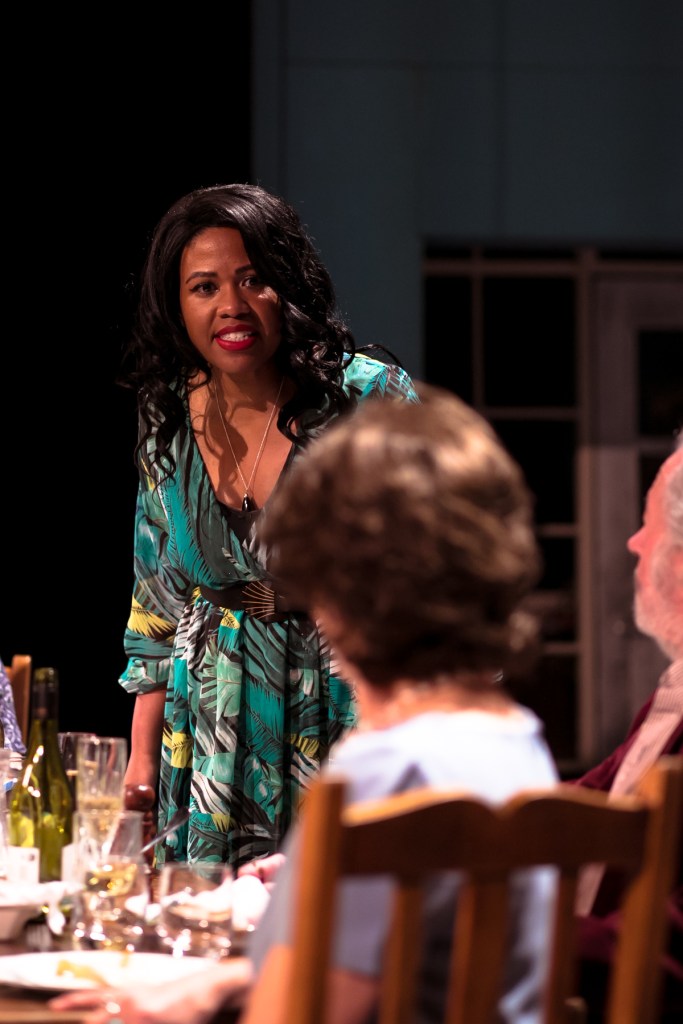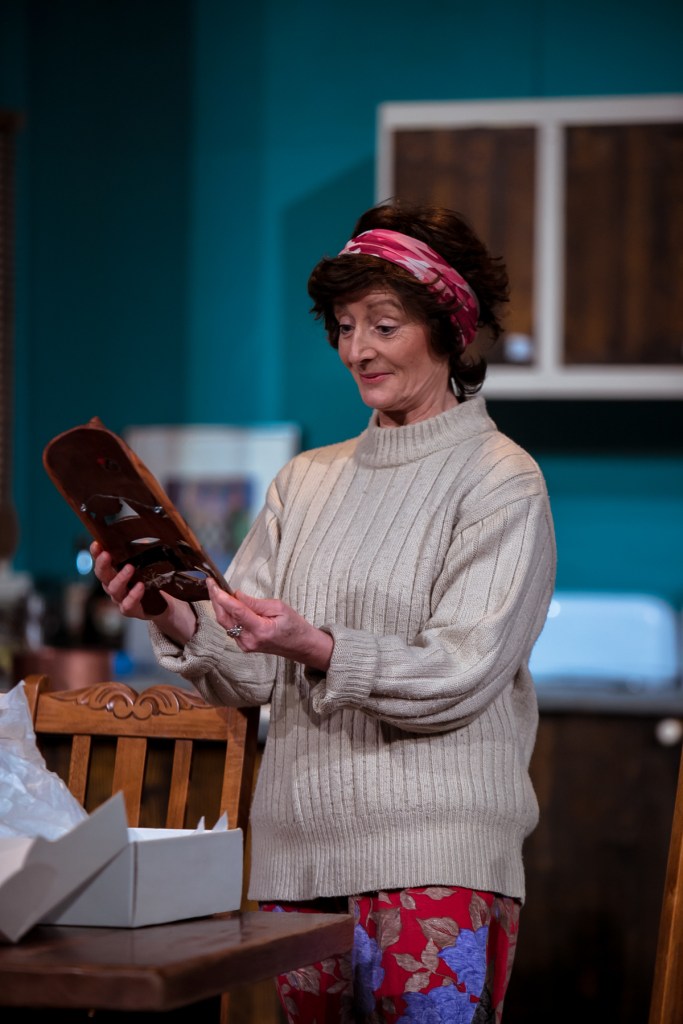Apologia
Blame Game
Apologia
by Alexi Kaye Campbell
The Questors Theatre at the Judi Dench Playhouse, Ealing until 21st May
Review by Eleanor Lewis
“Every generation, blames the one before,” states the lyric of Mike Rutherford and BA Robertson’s 1988 hit, The Living Years. The song, about a conflicted relationship between father and son, hits a nerve with almost everyone, generational dissonance being a given in the course of most family life. For children of the activist counterculture ‘60s generation though, the dissonance is particularly acute and reaches that much further.
The central character of Alexi Kaye Campbell’s Apologia is one such ‘60s idealist, Kristin Miller (Pamela Major). An active campaigner throughout her professional life as a respected art historian, she continued as she became mother to two sons. In later life her opinions are many and strong and she seems largely oblivious to the needs and feelings of those around her, including her children.
Long separated from the children’s father and living comfortably but alone in the countryside, Kristin invites her adult sons, Peter and Simon, and their respective girlfriends to a small birthday celebration. Family friend Hugh, endearingly played by Gareth Bevan, is also present. The evening then presents a series of conversations and events which serve to illustrate both the effect of parental absence on the children of Kristin and others who fought for the seismic changes that took place in the ‘60s, and the value of those freedoms now taken for granted by the next generation (particularly of women) who reaped the benefits of that social change.

Apologia isn’t just an interesting piece of social commentary though, it’s funny and engaging too, not least because it’s well constructed – there isn’t a wasted line in it – and very well directed by Meneka Das. It doesn’t feel like the two hours it occupies and Questors cast of actors rattle along at a great pace, all of them recognisable as people we all know, or perhaps are.
The women themselves represent progress, or missing bits of it. Kristin, despite everything she stands for, sees no irony in asking her son to “look at” the oven when it fails to work, despite his lack of expertise. She goes on to describe Trudi as “pretty” twice, and then notes that she looks “fertile”. Seemingly the world moves on yet all men still magically know how ovens work and pretty, fertile mates are still required for sons.
The younger women characters are interestingly written and equally well played. Peter’s American girlfriend Trudi (Amy Green) may be a cheerful, happy Christian but she’s also genuinely open-minded and kind. Claire (Tamara Laryea), girlfriend to Simon, has worked herself up from a grim background to become a successful soap actor, but rather than the stereotypical diva, she’s witty, self-deprecating and under no illusions about anything. These women, free to express themselves and form relationships, but not necessarily have children, largely manage or indulge Kristin but judge her only when she makes it unavoidable. There is a lot of kindness in this work, both young men are understood and supported by the young women as far as is possible and it is Amy Green’s Trudi who ultimately brings comfort to Kristin.
Where the men are concerned, Simon is the more damaged of Kristin’s two sons. In a sensitive performance, Jake Burman presents Simon as a still traumatised boy, and a deeply angry adult, forcing his mother to understand in no uncertain terms how stressful his childhood was. Peter (Robert Wixey) initially seems to have come to terms with his upbringing but is heading towards religion which, while it’s presented as a healthy type of religion (as religions go), yet suggests a need for order and structure in a world that has been chaotic.
Alex Marker provided a beautifully detailed country house kitchen set, complete with art, stylish painted walls and ‘tidy clutter’ which was effectively lit by Lloyd Wallis and Maddie MacConnol.
As the title suggests, Apologia is a defence rather than an apology so the challenge may not be to make Kristen sympathetic, but rather to make her actions understandable. Pamela Major succeeded admirably in this and gave Kristin dignity and vulnerability which made her to some degree relatable (as I believe the younger generation would have it).
The changing status of women during the 1960s and beyond, and the effect of those changes on their children, is a rich seam for playwrights to mine, Apologia is one of the most insightful explorations of it I have seen so far and this Questors production is well worth seeing.
Eleanor Lewis, May 2022
Photography by Evelina Plonyte





Trackbacks & Pingbacks